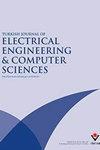基于词典的土耳其语情感分析的极性计算方法
IF 1.2
4区 计算机科学
Q4 COMPUTER SCIENCE, ARTIFICIAL INTELLIGENCE
Turkish Journal of Electrical Engineering and Computer Sciences
Pub Date : 2019-04-01
DOI:10.3906/ELK-1803-92
引用次数: 11
摘要
情感分析试图解析作者或演讲者想要传达给人们的关于一个物体或事件的感觉或情感。它通常使用自然语言处理和/或人工智能技术来处理电子文档并挖掘内容中指定的意见。近年来,研究人员对英语语言进行了许多成功的情感分析研究,这些研究考虑了许多单词和单词组,这些单词和单词组设置了英语语法结构产生的情感极性,然后使用数据集来测试它们的表现。然而,针对土耳其语的研究数量有限,而且与针对英语的研究相比,这些研究的表现结果较低。造成这种情况的原因可能是错误地将数据集从英语翻译成土耳其语,而忽略了后者的特殊语法结构。本研究在土耳其语言学家的帮助下确定了影响句子极性的特殊土耳其词和语言结构,并为该语言引入了一种适当的基于词典的极性确定和计算方法。使用从Twitter收集的不同数据集对所提出的方法进行了测试,测试结果表明,所提出的系统比先前开发的基于词汇的土耳其语情感分析系统具有更好的准确性。作者的结论是,特别是对词组的分析显著提高了系统的整体性能。本文章由计算机程序翻译,如有差异,请以英文原文为准。
A polarity calculation approach for lexicon-based Turkish sentiment analysis
Sentiment analysis attempts to resolve the senses or emotions that a writer or speaker intends to send across to the people about an object or event. It generally uses natural language processing and/or artificial intelligence techniques for processing electronic documents and mining the opinion specified in the content. In recent years, researchers have conducted many successful sentiment analysis studies for the English language which consider many words and word groups that set emotion polarities arising from the English grammar structure, and then use datasets to test their performance. However, there are only a limited number of studies for the Turkish language, and these studies have lower performance results compared to those studies for English. The reasons for this can be incorrect translation of datasets from English into Turkish and ignoring the special grammar structures in the latter. In this study, special Turkish words and linguistic constructs which affect the polarity of a sentence are determined with the aid of a Turkish linguist, and an appropriate lexicon-based polarity determination and calculation approach is introduced for this language. The proposed methodology is tested using different datasets collected from Twitter, and the test results show that the proposed system achieves better accuracy than the previously developed lexical-based sentiment analysis systems for Turkish. The authors conclude that especially analysis of word groups increases the overall performance of the system significantly.
求助全文
通过发布文献求助,成功后即可免费获取论文全文。
去求助
来源期刊

Turkish Journal of Electrical Engineering and Computer Sciences
COMPUTER SCIENCE, ARTIFICIAL INTELLIGENCE-ENGINEERING, ELECTRICAL & ELECTRONIC
CiteScore
2.90
自引率
9.10%
发文量
95
审稿时长
6.9 months
期刊介绍:
The Turkish Journal of Electrical Engineering & Computer Sciences is published electronically 6 times a year by the Scientific and Technological Research Council of Turkey (TÜBİTAK)
Accepts English-language manuscripts in the areas of power and energy, environmental sustainability and energy efficiency, electronics, industry applications, control systems, information and systems, applied electromagnetics, communications, signal and image processing, tomographic image reconstruction, face recognition, biometrics, speech processing, video processing and analysis, object recognition, classification, feature extraction, parallel and distributed computing, cognitive systems, interaction, robotics, digital libraries and content, personalized healthcare, ICT for mobility, sensors, and artificial intelligence.
Contribution is open to researchers of all nationalities.
 求助内容:
求助内容: 应助结果提醒方式:
应助结果提醒方式:


